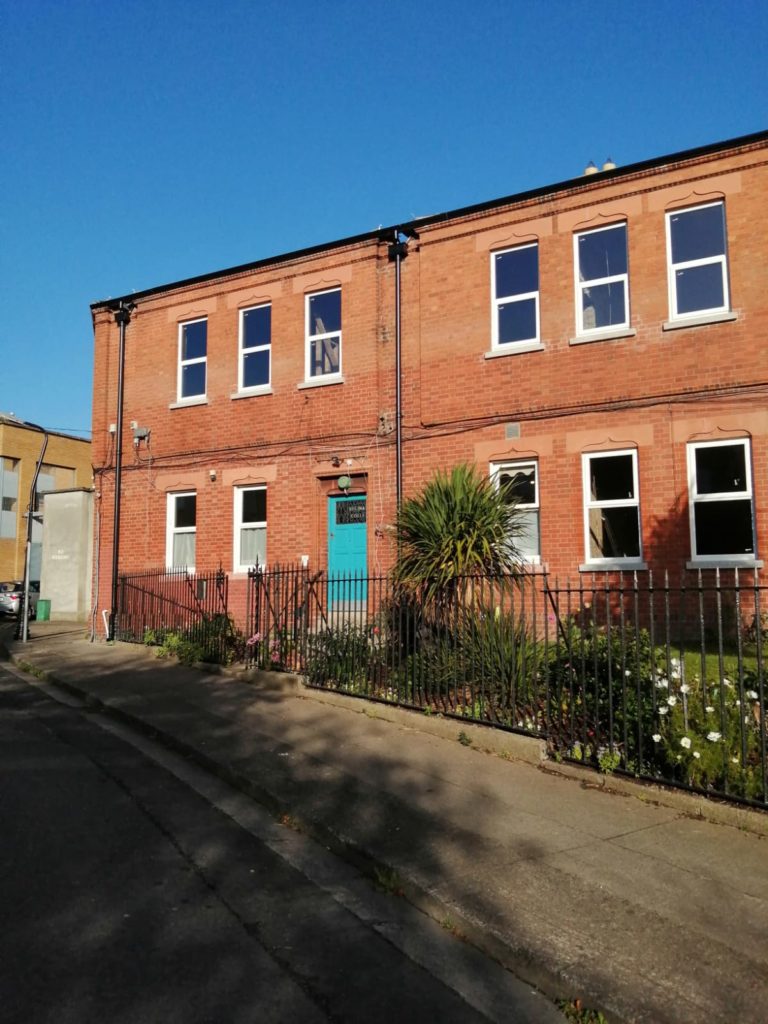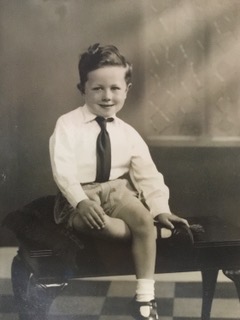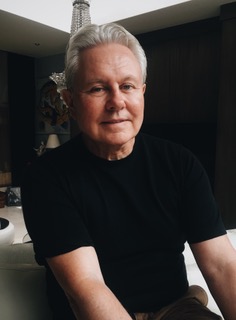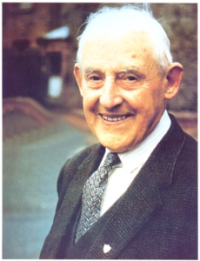OVER previous years Irish people have been appalled and shamed when countless stories emerged relating to the way unmarried mothers were treated by a cruel Catholic Church.
Each time we watched films like The Magdalene Sisters or the more recent Philomena, we would reel in disbelief at this horror in Ireland’s history.
Most of these poor women had their newborn babies snatched from them for adoption and many of the children and mothers have spent lifetimes since seeking out their identities from the secrecy of the state and its religious institutions.
So, it is uplifting and cheering when out of this period, a remarkably positive story of success emerges.
Mercifully at the height of these tragedies, there was one enlightened compassionate man who worked hard to create a safe place for unwed mothers.
In 1930s Dublin Frank Duff established Regina Coeli - a hostel where pregnant girls could seek sanctuary and keep their babies with them.
Gordon Lewis, born in 1953, was brought up there in secret by his mother.
“My mother never wanted to talk about the past and it was shut down,” he told The Irish Post.
“I realised just how much your parents do for you and how many sacrifices they make and I wanted to write down my mum’s story,” he added.
“Regina Coeli was very basic but my view is very simple, it is what you get used to, but we had the love of a mother and a community of about 100 women around you so it was very safe. It was my home, and I was happy.”
 The Regina Coeli site in Dublin
The Regina Coeli site in DublinWhen Gordon was nine years old his mother contacted ex-boyfriend Bill Walsh - not his father - and went over to London and married him.
This older Irish bachelor, a filmset carpenter, was set in his ways, but he generously embraced the boy, who he brought up as if he was his own son.
That boy went on to overcome the adversity and secrecy of his early life.
This remarkable, positive and heartfelt story was told by Lewis in his first, best-selling book Secret Child, which relates to his mother’s experience as an unwed mother in Ireland.
Now, he is back with a second volume, Secret To Sultan, in which the author tells his own amazing story.
He recounts how, having left school at 15, dyslexic with no qualifications, and after a stint on tough Irish building sites, he started as a messenger at London Weekend Television (LWT).
“At school in Ireland I was basically bored, and my mind would constantly drift off,” he explains.
“It was all about religion. We did not really learn anything except for the Church and the only history we learned was the Black and Tans, as the building we were in was an abandoned British Military barracks.”
He adds: “In England the school was completely different, and you actually started to learn something.
“Then I realised quite soon how vulnerable I was in not being able to spell - I was so embarrassed.
“I am very lucky, as I am now very comfortable, so I got in touch with the British Dyslexia Association as I wanted to do something more creative and positive than giving them cash.
“I wanted to draw attention to the problem – as many schools don’t even have a specialist teacher who can help a dyslexic child.
“My solution then was to make a simple film about a boy who is dyslexic. it is called MICAL.”
 Gordon Lewis as a child
Gordon Lewis as a childFrom the age of about 14 Lewis was determined to work in TV and by virtue of his ambition and his cheeky chappie charm he later got a break at LWT, where he got to meet the top pop music director Mike Mansfield.
When he was 20 years old, he was able to join his team and under Mansfield’s wing Lewis learned all about television production at a very exciting time.
“First I got a job as a post boy at London Weekend TV and it was like a holiday camp after the building sites,” he says.
“I was doing exactly what I wanted and before I knew it I had met everybody and knew the system.
“Mike Mansfield was already making Supersonic and was ahead of the game, so it was great to join him.”
Picking his moment around the time MTV was starting and the pop video was changing the face of the music business, Lewis, aged 23, courageously set up his own successful production company on a shoestring.
Soon this Irish boy living in London owned one of the most successful pop production companies in the world.
“After two years with Mike I wanted to prove something to myself and set up a whole new approach, but there was a huge recession and the record companies were making people redundant,” Lewis explained.
“Out of that came a new generation of directors and bands and so I got with them and it took off for me.”
Always restless and ambitious, Lewis spotted another lucrative opportunity and after selling out his film business he went on to a new challenge by opening and owning a number of stylish, well run gay bars around London’s Compton Street.
“In the earlier days I was driven by two things. I wanted to be a producer, but I also wanted something else, I wanted my cake and I wanted to eat it,” he admits.
“I wanted to make serious bucks and I did.
“But there was another side to me which I did not understand until I got older – that once I did what I wanted to do, something else happened.
“I actually got bored, I wanted to move on, so that’s what I did.”
He explained: “I got rid of everything and was wondering what I might do next when I was asked to give some advice to a friend who had a bar he was having problems with.
“At first I did it as a favour then said come on if we are really going to make this work lets go 50/50 and that’s what we did.
“To this day that place on the corner of Brewer Street is one of the biggest sites in Soho and that was Village Soho, which is still there.”
 Gordon Lewis today
Gordon Lewis todayA touching section in Lewis’ latest book is when he talks of his relationship with his mother and her death and how he then took time out with her husband Bill on luxury cruises as he was so grateful to him for caring for him as his own.
“I knew my mother had cancer and I knew she was only going to live about two years,” Lewis admits.
“I had already got them out of the council flat in Bridgwater Farm, Tottenham, which I hated, and I bought them a new flat.
“When she died, I took time out so I could spend time with Bill, who missed mum so much.”
Lewis was never deterred by adversity, as he had come from a poor background amongst the Irish community in London, and he had started his own business during a devastating recession.
And he has always remained proud of his roots.
“I never deliberately concealed my Irish accent or background.
"Growing up in North London and then living in Los Angles maybe toned it down, but I suppose with what was going on in Ireland and bombs going off you would not want an Irish accent to be too obvious back then,” he explained.
“I see myself as Irish first off,” he adds, “but I don’t dwell on nostalgia and if you are Irish there is a great tendency to be very nostalgic.”
“But I don’t just live in London, I live in Asia and I live in Brazil, so I am an international person.
“I am proud of being Irish but I’m not somebody who would dwell on it. I see it from a different point of view.”
 Frank Duff, founder of Regina Coeli
Frank Duff, founder of Regina CoeliGordon now splits his time between homes in London’s St John’s Wood and South America.
His involved in many projects - including making award-wining films with his partner Yeweng and trying to get a commemorative blue plaque put up on the Regina Coeli building.
“I was swimming and I was thinking it would be nice to do something for the memory of Regina Coeli so I have offered to pay to have a blue plaque put up on the wall there,” Lewis explains.
“Now I’m starting to sound nostalgic but it gave me a home, my mum was able to look after me and I am one of the many thousands of women and children who went through that place thanks to the vision of Frank Duff.
“It would be nice to do something special,” he adds,
“You would not believe it, but people go to this place and just stand outside and look full of emotion and gratitude after all these years.”
First his mother’s story Secret Child and now the follow up book Secret to Sultan are important testaments in the history of the Irish diaspora.
The life of the irrepressible Gordon Lewis is a beacon of encouragement showing us all that such a great success story can come out of underprivileged Irish roots if you have ambition, determination and a great sense of humour.
For further information or to purchase Secret Child or Secret to Sultan click here.

